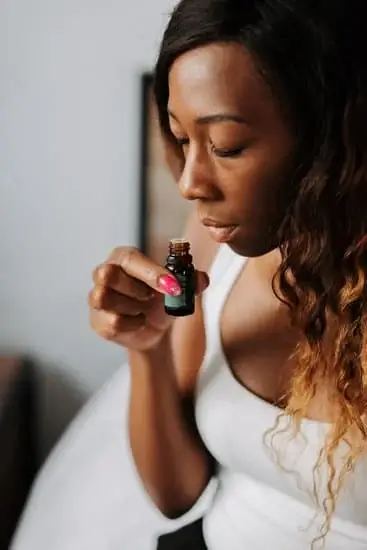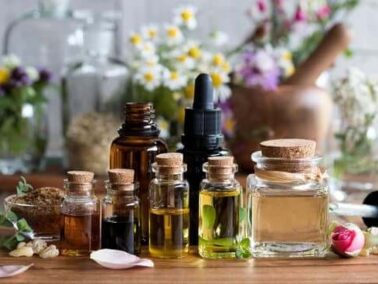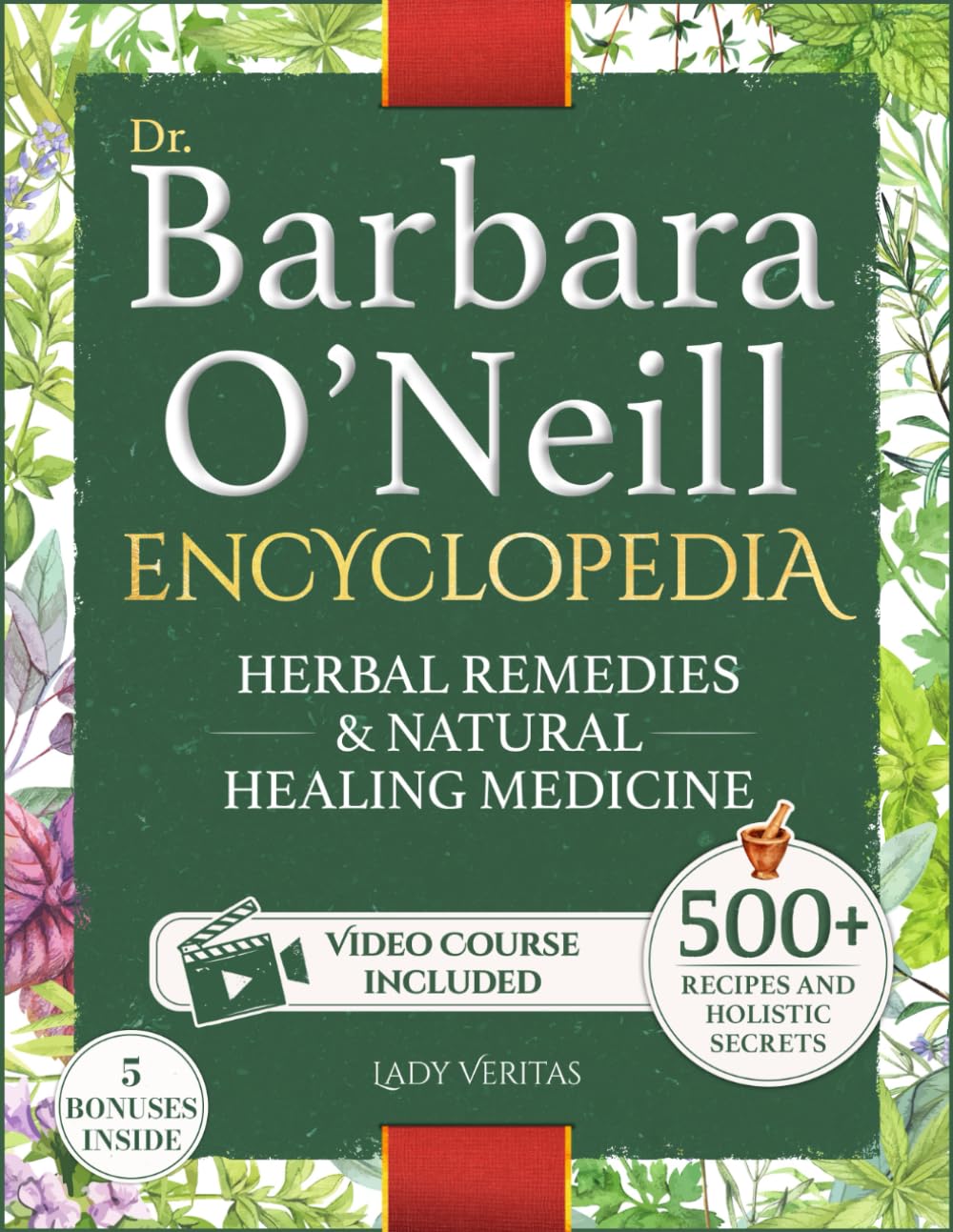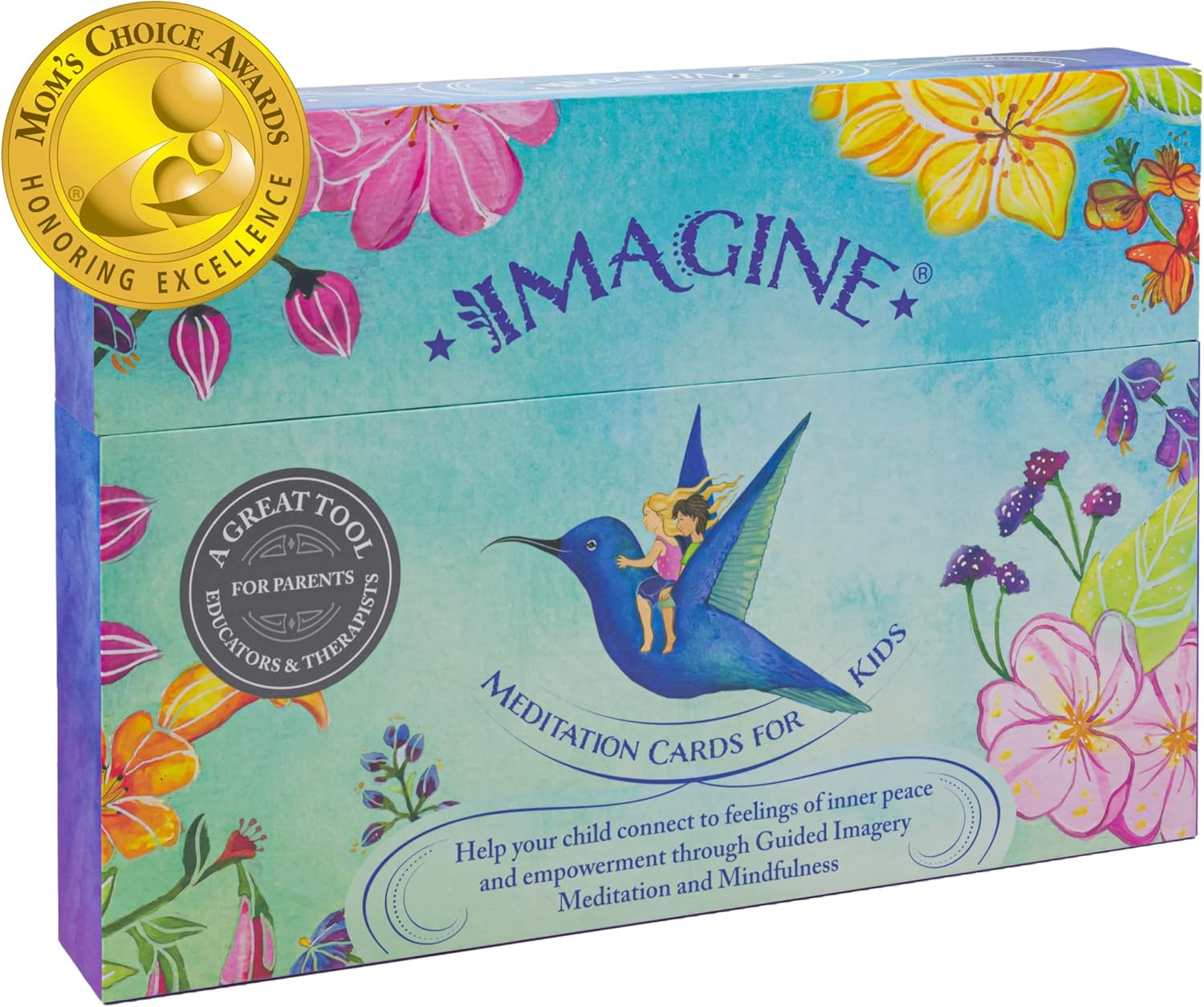Discover the holistic health benefits of essential oils in this comprehensive guide that explores their remarkable role in the realm of holistic wellness. Holistic wellness, an approach emphasizing the interconnectedness of mind, body, and spirit, has seen a surge in popularity, and essential oils are at the forefront of this movement. With their captivating aromas and versatile properties, these natural extracts have transcended ancient healing traditions to become integral in modern health and self-care practices. Join us as we embark on a journey to unravel the potential of essential oils, offering a deeper understanding of their diverse properties and their transformative impact on overall well-being.
Table of Contents
Section 1: Understanding Essential Oils
1.1 What are Essential Oils?
Essential oils, nature's fragrant elixirs, are concentrated, aromatic compounds derived from the vital essences of various plants. These remarkable substances are found within the leaves, flowers, bark, stems, and roots of plants, and they have been used for centuries in traditional healing practices due to their potent therapeutic properties. The process of extracting essential oils is a meticulous one, often involving methods such as steam distillation or cold pressing. Steam distillation, for instance, harnesses the power of steam to gently coax the essential oil from plant matter, resulting in a highly concentrated, fragrant liquid imbued with the plant's essence. Cold pressing, on the other hand, is primarily used for citrus oils, where the oils are mechanically separated from the fruit's peel, capturing the zesty, vibrant aromas that these fruits are known for. These natural origins and extraction methods are what render essential oils as pure and holistic remedies, aligning seamlessly with the principles of holistic wellness.
1.2 The Science Behind Essential Oils
While the allure of essential oils lies in their captivating scents, there is an intricate science governing their effectiveness. Each essential oil is a complex amalgamation of chemical constituents, including terpenes, aldehydes, and esters, each contributing to the oil's unique scent and therapeutic properties. Beyond the aromatic charm, these oils work their magic on multiple levels - physical, emotional, and mental. The olfactory system, which processes scents, is directly connected to the brain's limbic system, the emotional center. This connection enables essential oils to evoke deep emotions and influence mood. On a physical level, essential oils can have various health benefits, from easing physical discomfort to supporting the immune system. The intricate synergy between their chemical composition and the human body makes essential oils an exceptional tool for achieving holistic well-being, addressing not just physical ailments but also nurturing emotional and mental balance. Understanding this scientific foundation is crucial for harnessing the full potential of essential oils in your holistic wellness journey.
Section 2: Holistic Health Benefits of Essential Oils
2.1 Physical Wellbeing
In the realm of holistic wellness, essential oils are prized for their remarkable ability to support physical health and well-being. These natural elixirs have been cherished for centuries for their capacity to address a wide array of physical concerns. Here, we delve into some of the most popular essential oils and their specific benefits for your physical health:
- Lavender for Relaxation: Lavender essential oil is celebrated for its soothing properties. Whether you're battling insomnia, stress, or anxiety, a few drops of lavender oil in a diffuser or diluted with a carrier oil and applied to your pulse points can promote relaxation and a sense of calm. Inhaling its gentle, floral aroma before bedtime can improve the quality of your sleep.
- Peppermint for Digestion: Peppermint oil is a well-known aid for digestive discomfort. It can help alleviate symptoms like bloating, indigestion, and nausea. Dilute a few drops of peppermint oil in a carrier oil and massage it in a clockwise direction over your abdomen to encourage healthy digestion.
- Eucalyptus for Respiratory Health: Eucalyptus essential oil is a trusted ally in promoting respiratory well-being. Its invigorating aroma can clear congestion and ease breathing difficulties. You can inhale it directly from the bottle or add a few drops to a bowl of hot water and inhale the steam to soothe respiratory issues.
2.2 Emotional and Mental Wellbeing
The holistic benefits of essential oils extend beyond the physical realm, permeating the sphere of emotions and mental well-being. The profound connection between scent and our emotional states allows essential oils to be potent tools for emotional balance and mental clarity:
- Rosemary for Mental Clarity: Rosemary essential oil is renowned for its ability to enhance mental clarity, focus, and memory. Diffuse it in your workspace or create a concentration-boosting blend with a carrier oil, and apply it to your temples or pulse points.
- Frankincense for Emotional Balance: Frankincense essential oil is revered for its capacity to instill a sense of peace and emotional equilibrium. Inhaling its rich, woody scent or diffusing it during meditation can help reduce stress and anxiety.
- Mood-Boosting Blends and Relaxation Techniques: Enhance your emotional and mental well-being by crafting your own essential oil blends. Try combining citrus oils like orange and bergamot for a cheerful mood boost, or create a soothing blend with lavender and chamomile for relaxation. Aromatherapy techniques such as inhaling directly from the bottle, using a diffuser, or blending with a carrier oil for massage can help you tailor your essential oil experience to your emotional needs.
Section 3: Practical Application
3.1 Safe Usage and Dilution
When it comes to harnessing the holistic health benefits of essential oils, safety is of paramount importance. These concentrated plant extracts are powerful and should be used thoughtfully to prevent potential skin sensitivities or adverse reactions. Here are some essential tips for safe usage:
- Dilution is Key: Essential oils are highly concentrated, and most should be diluted with a carrier oil like jojoba, coconut, or sweet almond oil before applying them to your skin. A general guideline is to use 1-2% essential oil in a carrier oil for most applications. This equates to roughly 6-12 drops of essential oil per ounce of carrier oil.
- Patch Testing: Before applying any essential oil to a larger area of your skin, it's wise to perform a patch test. Apply a small amount of your diluted oil to a discreet area, such as your inner forearm, and wait to see if any irritation occurs. If there's no adverse reaction within 24 hours, the oil is likely safe for you to use.
- Children and Pets: Extra caution is required when using essential oils around children and pets. Some oils can be harmful or toxic to them. Ensure you research each oil's safety with regard to age and species and use appropriate dilution ratios or consider avoiding certain oils altogether.
3.2 Methods of Application
Choosing the right method of application is essential for maximizing the benefits of essential oils. Different methods offer varying degrees of therapeutic impact, making it important to select the most suitable one for your purpose. Here are the primary methods of application:
- Diffusion: Diffusers disperse essential oil molecules into the air, allowing you to inhale their beneficial properties. This method is excellent for emotional well-being, as the scent can influence your mood and create a serene atmosphere.
- Topical Application: Applying diluted essential oils directly to the skin can target physical concerns. This method is effective for addressing localized issues or for massages. Remember to dilute properly and perform a patch test before widespread application.
- Inhalation: Inhaling essential oils directly from the bottle, a tissue, or a bowl of hot water can provide quick relief for respiratory and emotional issues. It's a powerful method for addressing stress, anxiety, and congestion.
- Internal Use (with Caution): Some essential oils are safe for internal consumption but should be used sparingly and under the guidance of a qualified aromatherapist or healthcare professional. Not all essential oils are safe for ingestion, so research and caution are paramount.
In choosing the right application method, consider your specific wellness goals and needs. Whether you seek physical relief, emotional support, or enhanced mental clarity, understanding these application methods will help you leverage the holistic potential of essential oils effectively while ensuring a safe and enjoyable experience.
Section 4: Choosing the Right Essential Oils
4.1 Quality Matters
Selecting the right essential oils is a crucial step on your journey towards holistic well-being. The quality of the oils you choose can significantly impact their effectiveness and safety. Here's why quality matters and how to ensure you're using the purest, most potent essential oils:

- Significance of Quality: High-quality, pure essential oils contain the highest concentration of the plant's beneficial compounds, ensuring you reap the maximum holistic health benefits. On the other hand, low-quality or adulterated oils may lack therapeutic properties and could potentially be harmful.
- Identifying Genuine Products: To ensure you're purchasing genuine essential oils, consider these tips: Look for oils that are 100% pure, free from additives or synthetic fillers. Check for a reputable brand with transparent labeling that provides information about the oil's botanical name, country of origin, and extraction method. Read reviews and seek recommendations from trusted sources.
Read our review of Shower Steamers Aromatherapy Packs here.
4.2 Personal Preferences and Needs
Selecting essential oils tailored to your personal preferences and health needs is a vital part of your holistic wellness journey. Every individual's path to well-being is unique, and understanding your specific goals and desires will help you find the right oils:
- Consider Individual Goals: Think about your health goals and concerns. Are you looking to reduce stress, improve your sleep, or address physical ailments like headaches or muscle tension? Identifying your primary objectives will guide you in choosing the most suitable essential oils.
- Personal Aromatherapy Preferences: Scents are deeply personal, and what works for one person may not work for another. Pay attention to your scent preferences. Some may find comfort in the calming aroma of lavender, while others may resonate more with the invigorating scent of citrus oils. Trust your intuition when selecting oils that resonate with you on an emotional level.
- Resources for Specific Concerns: There are numerous resources available to help you find the best essential oils for your specific concerns. Aromatherapy books, online communities, and consulting with certified aromatherapists can provide valuable guidance. They can offer insights on specific oil blends, usage guidelines, and safety precautions to address your unique health needs.
By considering the quality of the oils and aligning your choices with your personal wellness goals, you'll be better equipped to harness the holistic health benefits of essential oils effectively. As you delve deeper into this aromatic world, remember that your journey is as individual as you are, and your choices should reflect your unique path towards well-being.
Section 5: Incorporating Essential Oils into Daily Life
5.1 Creating a Holistic Wellness Routine
Integrating essential oils into your daily life can be a transformative experience, ushering in a sense of balance and vitality. A consistent wellness routine can help you make the most of these natural elixirs. Here's a sample daily routine that demonstrates how you can infuse essential oils into your life for holistic well-being:
- Morning Uplift: Start your day with a burst of energy. Add a few drops of invigorating citrus essential oils like lemon, grapefruit, or orange to your shower or diffuser. The vibrant scent can help wake up your senses and provide a positive start to your day.
- Midday Stress Relief: In the midst of a hectic day, take a moment to de-stress. Aromatherapy inhalation, such as a whiff of lavender or eucalyptus, can help calm your mind and refocus your energy.
- Afternoon Clarity: Boost your mental clarity and concentration by diffusing rosemary or peppermint oil in your workspace. These oils can help you stay focused and productive.
- Evening Relaxation: As the day winds down, unwind with soothing essential oils like lavender, chamomile, or frankincense. Diffuse these calming scents in your bedroom, or add a few drops to a warm bath to promote relaxation and a peaceful night's sleep.
- Nighttime Self-Care: Consider a bedtime ritual with essential oils that helps signal your body it's time to rest. Apply a relaxing blend, such as lavender and cedarwood, to your pulse points or the soles of your feet for a restful night.
The key to success in this routine is consistency. By incorporating essential oils into your daily life, you create a consistent self-care practice that supports your holistic well-being. It's through this regularity that you can harness the full potential of essential oils for physical, emotional, and mental balance.
5.2 Holistic Wellness and Essential Oils in the Long Term
Embracing essential oils as a part of your holistic wellness journey is not just a short-term trend; it's a commitment to long-term well-being. Over time, the consistent use of essential oils can yield numerous benefits. Here's why this long-term approach is valuable:
- Balanced Well-Being: Essential oils can help you maintain emotional balance, support physical health, and enhance mental clarity. As you continue to use them over the long term, these benefits become a part of your daily life.
- Reduced Reliance on Synthetics: Over time, you may find yourself relying less on synthetic products for emotional support, relaxation, or physical discomfort. Essential oils offer a natural alternative, reducing your exposure to potentially harmful chemicals.
- Testimonials and Real-Life Examples: Many individuals who have embraced essential oils in their holistic wellness routines have shared their experiences. These real-life testimonials can serve as inspiration and motivation. It's encouraging to hear how essential oils have positively impacted the lives of others.
As you journey through the world of essential oils, you'll likely discover that they become an integral part of your holistic wellness lifestyle. With dedication, an open heart, and an inquisitive spirit, the holistic health benefits of essential oils can continue to enrich your life in meaningful ways for years to come.
Conclusion
In the course of our exploration, we've uncovered the remarkable holistic health benefits of essential oils, and their capacity to enrich our lives with physical, emotional, and mental well-being. These potent elixirs derived from nature offer a versatile and holistic approach to health that aligns seamlessly with the interconnectedness of mind, body, and spirit. Essential oils have transcended tradition to become a cornerstone in the realm of holistic wellness, offering an array of transformative possibilities.
The versatility of essential oils is truly awe-inspiring. From soothing lavender to invigorating peppermint, and from emotional balance with frankincense to mental clarity with rosemary, these oils possess the power to address a multitude of needs. With knowledge and care, they can be woven into your daily routine, becoming trusted allies on your holistic wellness journey.
We invite you to embark on your own exploration of the world of essential oils, to experience their transformative influence and witness the myriad ways they can promote balance, vitality, and tranquility in your life. Whether you are new to the concept or an experienced enthusiast, essential oils hold a world of possibilities awaiting your discovery.
In all your holistic wellness endeavors, remember that while essential oils offer exceptional natural support, they are not a substitute for professional healthcare advice. If you have specific health concerns or unique requirements, it is always wise to consult with a qualified healthcare professional who can provide personalized guidance tailored to your individual needs. By partnering the wisdom of essential oils with professional healthcare expertise, you can embark on a holistic wellness journey that nurtures your mind, body, and spirit for a healthier and more balanced life.
For more information on Holistic Aromatherapy visit National Association for Holistic Aromatherapy



